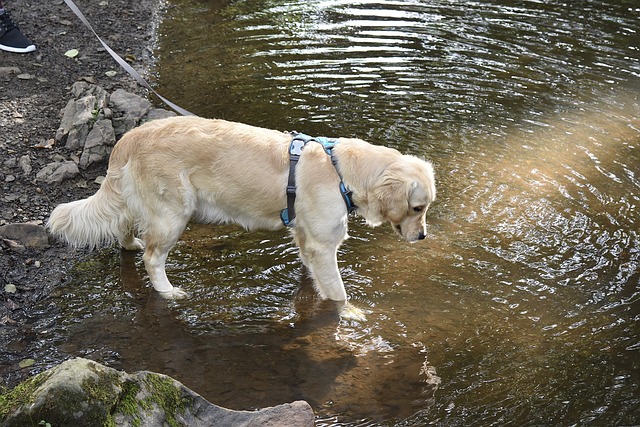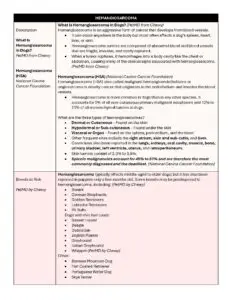Canine Hemangiosarcoma
(Blood Vessel) & Breeds at Risk
Research, Resources & Education
This website is based on research and is NOT created to diagnose your pet.
Each animal is an individual and may exhibit symptoms in a different way.
It is advised that you ALWAYS CHECK WITH YOUR VETERINARIAN for a proper diagnosis and treatment plan.
Please visit Lost Temple Fitness & Cancer for more information of cancer in humans including
What is Cancer and Treatments.
Table of Contents
Canine Hemangiosarcoma
Hemangiosarcoma is a cancer that invades blood vessels. When a tumor ruptures, it bleeds into a body cavity like the chest or abdomen.
Symptoms Include Weakness, Abdominal distension, Pale mucous membranes and Collapse
Hemangiosarcoma typically affects middle-aged to older dogs. Some of the breeds may be predisposed include: Boxers, German Shepherds, Golden Retrievers, Basset Hounds and Dalmatians.
Treatments include Surgery, Chemotherapy, Immunotherapy and Radiotherapy
What Dogs are at Risk?
Some Dogs that are at Risk due to Genetic Predisposition
















Hemangiosarcoma Videos
YouTube Videos that help explain Hemangiosarcoma in Dogs.
Disclaimer:
This is for research only and Lost Temple Pets does not endorse any video presented on this website.
It is advised that you ALWAYS CHECK WITH YOUR VETERINARIAN for a proper diagnosis and treatment plan.
What is Hemangiosarcoma?
What Is Hemangiosarcoma in Dogs? (PetMD from Chewy)
What Is Hemangiosarcoma in Dogs? (PetMD from Chewy)
Hemangiosarcoma is an aggressive form of cancer that develops from blood vessels.
- It can occur anywhere in the body but most often affects a dog’s spleen, heart, liver, or skin.
- Hemangiosarcoma tumors are composed of abnormal blood and blood vessels that are fragile, invasive, and easily ruptured.
- When a tumor ruptures, it hemorrhages into a body cavity like the chest or abdomen, causing many of the clinical signs associated with hemangiosarcoma. (PetMD from Chewy)
Hemangiosarcoma (HSA) and Types (National Canine Cancer Foundation)
Hemangiosarcoma (HSA) (National Canine Cancer Foundation)
Hemangiosarcoma (HSA) also called malignant hemangioendothelioma or angiosarcoma is deadly cancer that originates in the endothelium and invades the blood vessels.
- Hemangiosarcoma is more common in dogs than in any other species. It accounts for 5% of all non-cutaneous primary malignant neoplasms and 12% to 21% of all mesenchymal tumors in dogs.
What are the three types of hemangiosarcomas?
- Dermal or Cutaneous – Found on the skin
- Hypodermal or Sub-cutaneous – Found under the skin
- Visceral or Organ – Found on the spleen, pericardium, and the heart
Other frequent sites include the right atrium, skin and sub-cutis, and liver.
- Cases have also been reported in the lungs, kidneys, oral cavity, muscle, bone, urinary bladder, left ventricle, uterus, and retroperitoneum.
- Skin tumors consist of 2.3% to 3.6%.
- Splenic malignancies account for 45% to 51% and are therefore the most commonly diagnosed and the deadliest. (National Canine Cancer Foundation)
Causes and Genetics
What are the causes of HSA? (National Canine Cancer Foundation)
What are the causes of HSA? (National Canine Cancer Foundation)
The etiology of this disease is not exactly known. However, its exclusive occurrence in dogs points to the heritable factors that contribute to the risk. Ultimately, the interactions of these risk factors with the environment probably lead to the mutations that give rise to the tumor.
- Lesions arise when the cell gathers mutations that render the normal constraints of growth and genetic integrity of cells null and void.
- Mutations take place because the enzymes that control cell division are not foolproof. Some cells in the body divide constantly to replace dead or damaged cells. Therefore, mutations are introduced into the body regularly.
- Cutaneous hemangiosarcoma (found on the skin) is said to be the result of exposure to sunlight. (National Canine Cancer Foundation)
Are Some Dogs More Susceptible? (AKC)
Are Some Dogs More Susceptible? (AKC)
The cause of HSA is not yet known, but there may be a genetic component since it is more commonly diagnosed in certain breeds.
- Gene studies from dogs with hemangiosarcoma are identifying mutations, with one study showing the most significantly mutated gene to be tumor suppressor TP53, which may appear in certain breeds.
- According to Jaime Modianoat the University of Minnesota College of Veterinary Medicine, breeds like Golden Retrievers, Portuguese Water Dogs, Boxers, and German Shepherd Dogs are considered to be at higher risk.
- “Any dog of any breed, including mixed breeds, and of either sex, regardless of whether it is intact or neutered, can develop hemangiosarcoma,” says Dr. Modiano.
Although HSA is much more common in senior dogs aged between 8 and 12 years, Cornell’s Baker Institute found dogs as young as 2 and as old as 15 were being diagnosed with HSA.
- “Why dogs are particularly susceptible is unknown, but hemangiosarcoma of the internal organs is very rarely seen in livestock like horses, cows, and goats,” says Sams. On rare occasions, HSA can occur in cats. (AKC)
Symptoms
What are the symptoms? (UF Health – Small Animal College)
What are the symptoms? (UF Health – Small Animal College)
Clinical signs of HSA are often related to rupture and hemorrhage of the tumor including:
- Weakness (it can be intermittent)
- Abdominal distension
- Pale mucous membranes
- Collapse
Dogs with tumors involving the right atrium of the heart may present with:
- Arrhythmias
- Muffled heart sounds
- Signs of heart failure
Some dogs may suffer sudden death due to a rupture of a mass in a critical location or severe and acute blood loss into a body cavity.
- HSA may occur as cutaneous, subcutaneous or deep masses invading or originating from the muscle.
- These locations may cause lameness, a hard swelling within the muscle or edema of the affected region. (UF Health – Small Animal College)
Testing and Staging
How Veterinarians Diagnose Hemangiosarcoma in Dogs (PetMD from Chewy)
How Veterinarians Diagnose Hemangiosarcoma in Dogs (PetMD from Chewy)
Veterinarians may suspect hemangiosarcoma based on clinical signs and history. Because hemangiosarcoma can affect any body system, testing and diagnosis is different based on individual cases.
- All forms of hemangiosarcoma involve staging, which is a determination of the severity and spread of the disease. Staging will decide available treatment options for pets and develop a general prognosis and expected survival time.
- Once a veterinarian suspects hemangiosarcoma, they will typically recommend bloodwork, chest x-rays, an abdominal ultrasound, and a cardiac echocardiogram.
- Advanced imaging, such as a CT scan or MRI, can help figure out the extent of disease spread.
Splenic hemangiosarcoma
- Veterinarians may diagnose a dog with splenic hemangiosarcoma after an acute collapse episode or weakness after a tumor ruptures. Often, splenic hemangiosarcoma is diagnosed after a veterinarian feels an enlarged spleen or incidentally discovers a mass on the spleen during an x-ray or ultrasound.
- For a definitive diagnosis, the spleen must be biopsied, and the samples must be evaluated by a pathologist.
Cardiac hemangiosarcoma
- Heart tumors are usually diagnosed by an ultrasound of the heart, known as an echocardiogram.
- Veterinarians may suspect a heart tumor after episodes of collapse and other evidence of poor heart function. These tumors may also be discovered incidentally on routine chest x-rays.
- A biopsy would also be required for a definitive diagnosis, but due to the location of the tumor around the heart, a biopsy is dangerous and typically not recommended.
- Most cardiac tumors are suspected to be hemangiosarcoma, but few are confirmed.
- Cardiac hemangiosarcoma is commonly discovered with other types of hemangiosarcoma, most notably of the spleen.
- During the diagnostic workup process for splenic hemangiosarcoma, veterinarians typically closely evaluate the liver, lungs, and heart, which are all common places for hemangiosarcoma to spread.
Cutaneous/subcutaneous hemangiosarcoma
- Veterinarians typically start diagnosing skin tumors with a test called a fine needle aspirate (FNA). To perform an FNA, a veterinarian will use a needle to collect a small sample of tumor cells. These cells are then evaluated under a microscope.
- Some tumors easily shed cells during this process; however, most FNAs performed on hemangiosarcomas are only blood-filled and do not readily offer a diagnosis.
- A non-diagnostic FNA may raise a veterinarian’s suspicion of cutaneous or subcutaneous hemangiosarcoma.
- A surgical biopsy is required for a definitive diagnosis. (PetMD from Chewy)
Treatment
What is the treatment for Hemangiosarcoma? (National Canine Cancer Foundation)
What is the treatment for Hemangiosarcoma? (National Canine Cancer Foundation)
Surgery remains the primary method of treatment for all dogs with HSA. Cutaneous tumors are curable with surgery alone.
- But before the surgery appropriate treatment for shock-like crystalloids, colloids and severe coagulation anomalies should be addressed. The surgery here is quite aggressive because all the locally affected tissues have to be removed.
- For splenic HSAvets go for During the operation, the entire abdomen is thoroughly examined and all the lesions are sent for histopathology.
- Dogs undergoing this surgery are susceptible to arrhythmia (irregular heartbeats). Thus, post-operation an ECG is needed to monitor the heartbeats of dogs.
- This issue gets resolved in 24-48 hours.
- An open or thoracoscopic pericardiectomy is a palliative procedure that allows effusion to escape into the thorax instead of accumulating in the pericardium where a small volume can restrict function.
Other forms of treatment for Hemangiosarcoma include:
Chemotherapy
- Since a vast majority of the tumors are metastatic, chemotherapy is recommended after the surgery.
- The standard chemotherapy protocol for Hemangiosarcoma is single-agent and combination doxorubicin, (DOX) intravenously given every 3 weeks.
- Other combinations used are vincristine, cyclophosphamide and methotrexate, but these have not yielded satisfying results.
- In cases where surgery is impossible due to the location or the invasiveness of the disease, DOX-based chemotherapy is known to have reduced the gravity of the disease.
Immunotherapy
- Patients treated with immunotherapy using liposome-encapsulated muramyl tripeptide-phosphatidylethanolamine (L-MTP-PE) have shown marked improvement. The drug is not available in the US, but it has gained orphan status in the European Union and is being used in the treatment of pediatric osteosarcoma.
Radiotherapy (RT)
- It is not so often used due to the high metastatic rate of the disease and the involvement of anatomic sites. A combination of palliative RT with chemotherapy may prove beneficial, but it awaits further investigation. It may prove beneficial in cases like solitary dermal HSA or incomplete resection. (National Canine Cancer Foundation)
References
References
AKC (American Kennel Club) Hemangiosarcoma in Dogs: What to Know
By Harriet Meyers Updated: Dec 12, 2023
https://www.akc.org/expert-advice/health/hemangiosarcoma-in-dogs/
Canine Health Foundation – Canine Hemangiosarcoma – The Road from Despair to Hope
Michelle G. Ritt, DVM, DACVIM; Tessa Breen, BSc (Hons), Dip GD, CMM 08/16/2007
https://www.akcchf.org/canine-health/your-dogs-health/canine-hemangiosarcoma.html
National Canine Cancer Foundation – Hemangiosarcoma (HSA) Or Angiosarcoma In Dogs
https://wearethecure.org/learn-more-about-canine-cancer/canine-cancer-library/hemangiosarcoma/
Pet MD from Chewy – Hemangiosarcoma in Dogs
By Lauren Jones, VMD Updated Sep. 23, 2022
https://www.petmd.com/dog/conditions/cancer/hemangiosarcoma-dogs
UF Health Small Animal College (College for Veterinary Medicine) – Hemangiosarcoma in Dogs
Cancer/Breed Chart
| BREED | BRAIN | HEMANGIO- SARCOMA | LYMPHOMA | MAMMARY TUMORS | MAST CELL TUMOR | MELANOMA | NASAL TUMOR | ORAL | OSTEOSARCOMA | PERIANAL/ ANAL SAC | SOFT TISSUE SARCOMA | TRANSITIONAL (TCC) / UROTHELIAL (UC) |
|---|---|---|---|---|---|---|---|---|---|---|---|---|
| Airedale Terrier | Lymphoma | Melanoma | Nasal Tumor | Soft Tissue Sarcoma | TCC or UC | |||||||
| Basset Hound | Hemangiosarcoma | Lymphoma | Nasal Tumor | Soft Tissue Sarcoma | ||||||||
| Bulldog, English | Brain | Lymphoma | Mast Cell Tumor | Perianal/Anal Sac | Soft Tissue Sarcoma | |||||||
| Bullmastiff | Lymphoma | Mast Cell Tumor | Soft Tissue Sarcoma | |||||||||
| St. Bernard | Lymphoma | Osteosarcoma | Soft Tissue Sarcoma | |||||||||
| Golden Retriever | Brain | Hemangiosarcoma | Lymphoma | Mast Cell Tumor | Melanoma | Oral | Osteosarcoma | Perianal/Anal Sac | Soft Tissue Sarcoma | |||
| Labrador Retriever | Hemangiosarcoma | Lymphoma | Mast Cell Tumor | Melanoma | Nasal Tumor | Oral | ||||||
| Scottish Terrier | Brain | Lymphoma | Melanoma | Nasal Tumor | Oral | Soft Tissue Sarcoma | TCC or UC | |||||
| Boxer | Brain (Glioma) | Hemangiosarcoma | Lymphoma | Mammary Tumor | Mast Cell Tumor | Oral | Osteosarcoma | Soft Tissue Sarcoma | ||||
| Beagle | Hemangiosarcoma | Lymphoma | Mast Cell Tumor | Perianal/Anal Sac | TCC or UC | |||||||
| West Highland White Terrier | Lymphoma | |||||||||||
| Chow Chow | Lymphoma | Melanoma | Oral | |||||||||
| Poodle, Standard | Lymphoma | Melanoma | Nasal Tumor | Oral | ||||||||
| Rottweiler | Lymphoma | Oral | Osteosarcoma | |||||||||
| Poodle, Toy | Lymphoma | Mammary Tumor | Melanoma | Nasal Tumor | ||||||||
| Yorkshire Terrier | Lymphoma | Mammary Tumor | ||||||||||
| German Shepherd | Hemangiosarcoma | Lymphoma | Mammary Tumor | Melanoma | Nasal Tumor | Oral | Osteosarcoma | Perianal/Anal Sac | ||||
| Poodle, Miniature | Lymphoma | Mammary Tumor | Melanoma | Nasal Tumor | Oral | |||||||
| Affenpinscher | ||||||||||||
| Afghan Hound | ||||||||||||
| Alaskan Malamute | Perianal/Anal Sac | |||||||||||
| American Eskimo, Toy and Standard | ||||||||||||
| American Foxhound | ||||||||||||
| American Pitt Bull Terrier | Hemangiosarcoma | |||||||||||
| American Staffordshire Terrier | ||||||||||||
| American Water Spaniel | ||||||||||||
| Anatolian Shepherd Dog | ||||||||||||
| Australian Cattle Dog | TCC or UC | |||||||||||
| Australian Shepherd | TCC or UC | |||||||||||
| Australian Terrier | ||||||||||||
| Basenji | ||||||||||||
| Bearded Collie | ||||||||||||
| Beauceron | ||||||||||||
| Bedlington Terrier | ||||||||||||
| Belgian Groenendael | ||||||||||||
| Belgian Malinois | ||||||||||||
| Belgian Tervuren | ||||||||||||
| Bernese Mountain Dog | Hemangiosarcoma | Melanoma | Soft Tissue Sarcoma | |||||||||
| Bichon Frise’ | TCC or UC | |||||||||||
| Black and Tan Coonhound | ||||||||||||
| Black Russian Terrier | ||||||||||||
| Bloodhound | Soft Tissue Sarcoma | |||||||||||
| Boerboel | ||||||||||||
| Border Collie | Brain | TCC or UC | ||||||||||
| Border Terrier | ||||||||||||
| Borzoi | Osteosarcoma | |||||||||||
| Boston Terrier | Brain | Mast Cell Tumor | Melanoma | Soft Tissue Sarcoma | ||||||||
| Bouvier des Flandres | Soft Tissue Sarcoma | |||||||||||
| Briard | ||||||||||||
| Brussels Griffon | ||||||||||||
| Bull Terrier | Mast Cell Tumor | Melanoma | ||||||||||
| Bull Terrier, Miniature | Mast Cell Tumor | Melanoma | ||||||||||
| Cairn Terrier | ||||||||||||
| Canaan Dog | ||||||||||||
| Cane Corso (Italian Mastiff) | ||||||||||||
| Caucasian Shepherd | ||||||||||||
| Cavalier King Charles Spaniel | Perianal/Anal Sac | |||||||||||
| Chesapeake Bay Retriever | Melanoma | |||||||||||
| Chinese Crested | ||||||||||||
| Chinese Shar-Pei | Mast Cell Tumor | Soft Tissue Sarcoma | TCC or UC | |||||||||
| Clumber Spaniel | ||||||||||||
| Curly Coated Retriever | ||||||||||||
| Dalmation | Hemangiosarcoma | |||||||||||
| Dandie Dinmont Terrier | ||||||||||||
| Dogo Argentino | ||||||||||||
| Dogue de Bordeaux | ||||||||||||
| English Foxhound | ||||||||||||
| English Toy Spaniel AKA King Charles Spaniel | ||||||||||||
| Field Spaniel | ||||||||||||
| Finnish Spitz | ||||||||||||
| Flat-Coated Retriever | Hemangiosarcoma | |||||||||||
| Fox Terrier, Smooth | Mast Cell Tumor | |||||||||||
| Fox Terrier, Toy | Mast Cell Tumor | |||||||||||
| Fox Terrier, Wire | TCC or UC | |||||||||||
| French Bulldog | ||||||||||||
| German Pinscher | ||||||||||||
| German Wirehaired Pointer | ||||||||||||
| Glen of Imaal Terrier | ||||||||||||
| Great Dane | Brain | Osteosarcoma | Soft Tissue Sarcoma | |||||||||
| Great Pyrenees | ||||||||||||
| Greater Swiss Mountain Dog | ||||||||||||
| Greyhound | Brain (Meningioma) | Hemangiosarcoma | Osteosarcoma | Soft Tissue Sarcoma | ||||||||
| Harrier | ||||||||||||
| Havanese | ||||||||||||
| Ibizan Hound | ||||||||||||
| Irish Terrier | ||||||||||||
| Irish Water Spaniel | ||||||||||||
| Irish Wolfhound | Osteosarcoma | |||||||||||
| Italian Greyhound | Brain | Hemangiosarcoma | ||||||||||
| Japanese Chin | ||||||||||||
| Keeshond | Nasal Tumor | |||||||||||
| Kerry Blue Terrier | ||||||||||||
| Komondor | ||||||||||||
| Kuvasz | ||||||||||||
| Lakeland Terrier | ||||||||||||
| Leonberger | Osteosarcoma | |||||||||||
| Lhasa Apso | TCC or UC | |||||||||||
| Lowchen | ||||||||||||
| Manchester Terrier Toy | ||||||||||||
| Manchester Terrier, Standard | ||||||||||||
| Mastiff | Brain | |||||||||||
| Miniature Pincher | ||||||||||||
| Neapolitan Mastiff | ||||||||||||
| Newfoundland | ||||||||||||
| Norfolk Terrier | ||||||||||||
| Norwegian Buhund | ||||||||||||
| Norwegian Elkhound | Brain | Nasal Tumor | ||||||||||
| Norwich Terrier | ||||||||||||
| Nova Scotia Duck Tolling Retriever | ||||||||||||
| Old English Sheepdog | Brain | |||||||||||
| Otterhound | ||||||||||||
| Papillon | ||||||||||||
| Parsons Russell Terrier | TCC or UC | |||||||||||
| Pekingese | Brain | |||||||||||
| Petit Basset Griffon Vendeen (PBGV) | ||||||||||||
| Pharaoh Hound | ||||||||||||
| Plott Hound | ||||||||||||
| Polish Lowland Sheepdog | ||||||||||||
| Pomeranian | ||||||||||||
| Portuguese Water Dog | Brain | Hemangiosarcoma | ||||||||||
| Presa Canario | ||||||||||||
| Pug | Brain | Mast Cell Tumor | Soft Tissue Sarcoma | |||||||||
| Puli | ||||||||||||
| Pyrenean Shepherd | ||||||||||||
| Rhodesian Ridgeback | Mast Cell Tumor | Soft Tissue Sarcoma | ||||||||||
| Saluki | ||||||||||||
| Samoyed | Perianal/Anal Sac | |||||||||||
| Schipperke | ||||||||||||
| Schnauzer, Miniature | Mast Cell Tumor | Melanoma | Perianal/Anal Sac | Soft Tissue Sarcoma | ||||||||
| Schnauzer, Standard | Mast Cell Tumor | Melanoma | Soft Tissue Sarcoma | |||||||||
| Sealyham Terrier | ||||||||||||
| Shiba Inu | ||||||||||||
| Shih Tzu | Brain | |||||||||||
| Siberian Husky | Perianal/Anal Sac | |||||||||||
| Silky Terrier | ||||||||||||
| Skye Terrier | Hemangiosarcoma | |||||||||||
| Soft-Coated Wheaten Terrier | ||||||||||||
| Spinone Italiano | ||||||||||||
| Staffordshire Bull Terrier | Mast Cell Tumor | |||||||||||
| Sussex Spaniel | ||||||||||||
| Swedish Vallhund | ||||||||||||
| Tibetan Mastiff | ||||||||||||
| Tibetan Spaniel | ||||||||||||
| Tibetan Terrier | ||||||||||||
| Tosa | ||||||||||||
| Vizsla | Melanoma | |||||||||||
| Weimaraner | Mast Cell Tumor | |||||||||||
| Welsh Corgi, Cardigan | ||||||||||||
| Welsh Corgi, Pembroke | ||||||||||||
| Welsh Springer Spaniel | ||||||||||||
| Welsh Terrier | ||||||||||||
| Whippet | Hemangiosarcoma | TCC or UC | ||||||||||
| Wirehaired Pointing Griffon | ||||||||||||
| Akita (American) | Oral | |||||||||||
| Collie, Rough / Smooth Coat | Brain (Meningioma) | Nasal Tumor | Oral | TCC or UC | ||||||||
| Gordon Setter | Melanoma | Oral | ||||||||||
| Irish Setter | Melanoma | Oral | Osteosarcoma | Soft Tissue Sarcoma | ||||||||
| Schnauzer, Giant | Mast Cell Tumor | Melanoma | Oral | |||||||||
| Scottish Deerhound | Brain | Melanoma | Oral | Osteosarcoma | TCC or UC | |||||||
| Shetland Sheepdog | Nasal Tumor | Oral | TCC or UC | |||||||||
| Brittany | Mammary Tumor | |||||||||||
| Chihuahua | Mammary Tumor | Melanoma | ||||||||||
| English Cocker Spaniel | Mammary Tumor | |||||||||||
| English Setter | Mammary Tumor | |||||||||||
| English Springer Spaniel | Mammary Tumor | Melanoma | Perianal/Anal Sac | |||||||||
| Maltese | Mammary Tumor | |||||||||||
| Pointer | Hemangiosarcoma | Mammary Tumor | ||||||||||
| Cocker Spaniel (American) | Mammary Tumor | Mast Cell Tumor | Melanoma | Oral | Perianal/Anal Sac | |||||||
| Dachshund | Brain | Mammary Tumor | Mast Cell Tumor | Oral | Perianal/Anal Sac | |||||||
| Doberman Pinscher | Brain | Mammary Tumor | Melanoma | Oral | Osteosarcoma | |||||||
| German Shorthaired Pointer | Mammary Tumor | Nasal Tumor | Oral |
